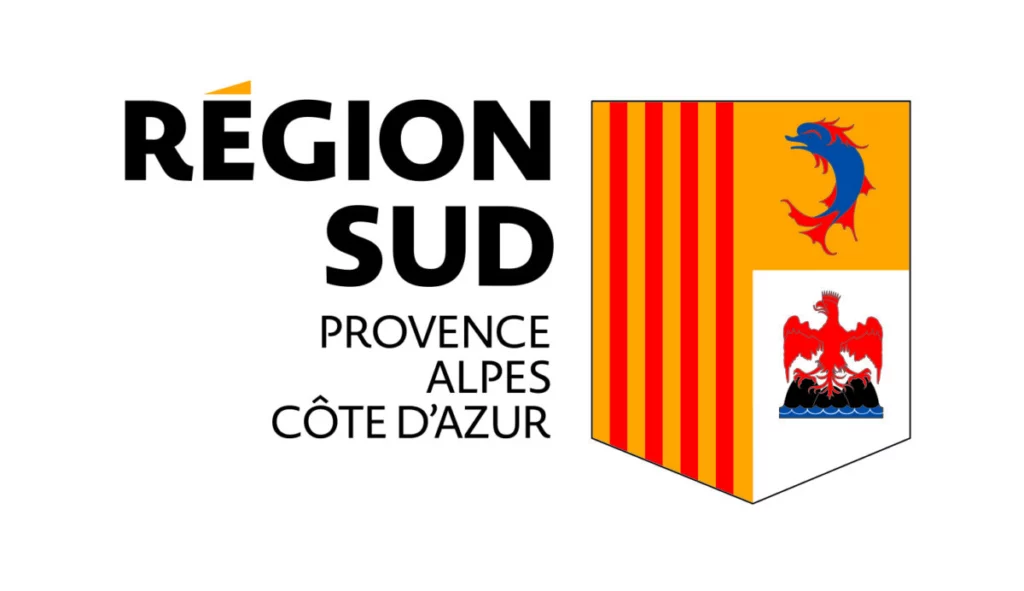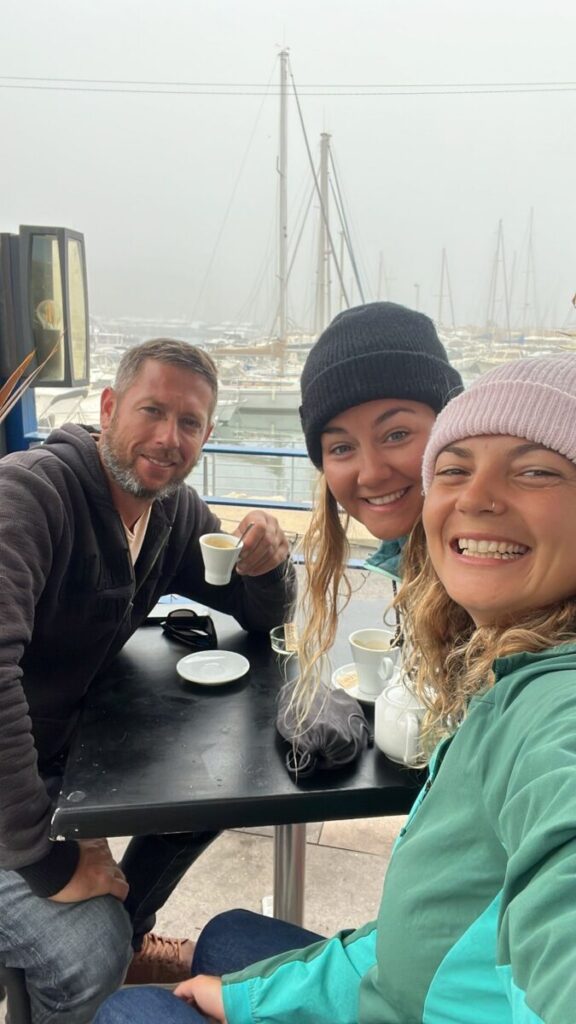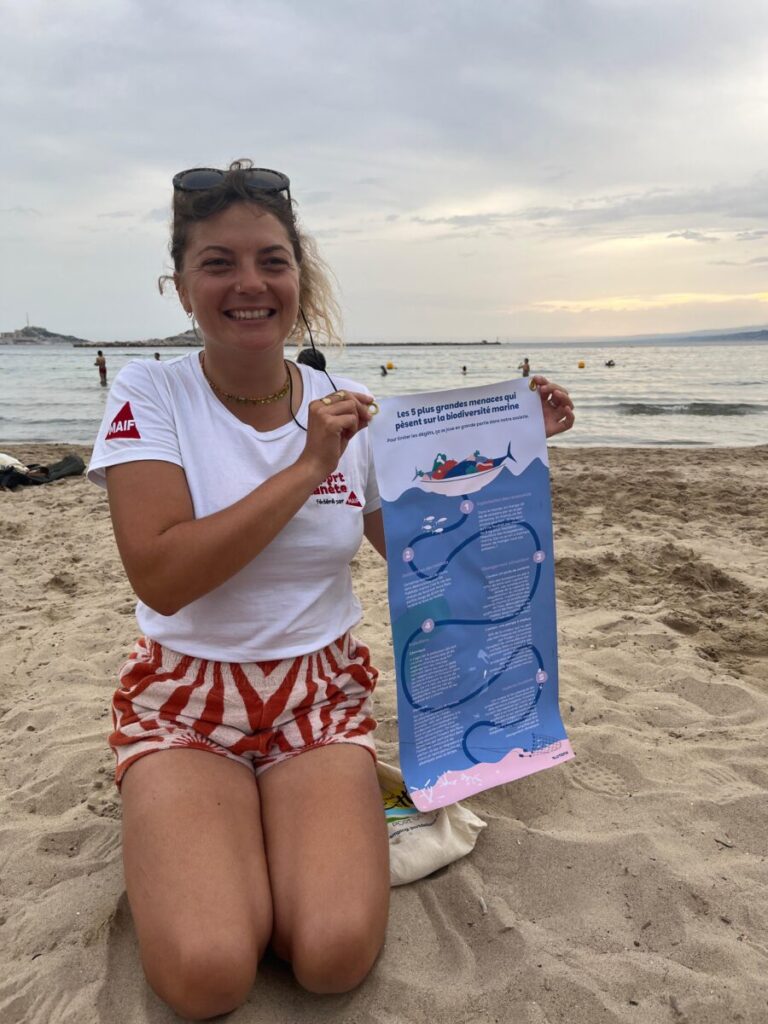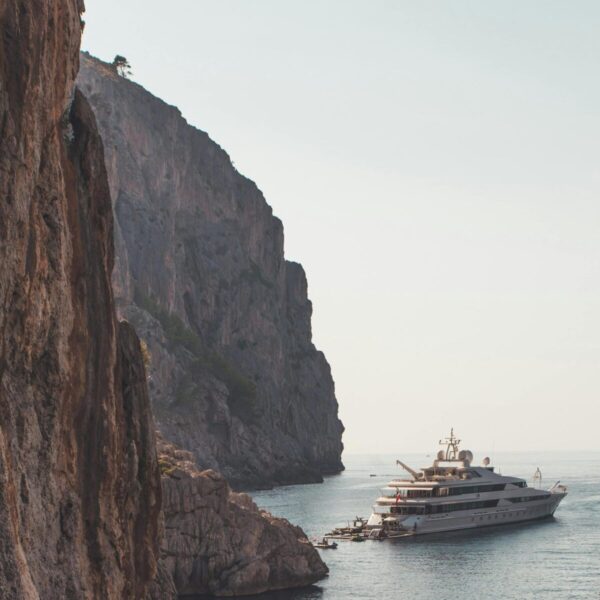As heads of state, diplomats, NGOs, and experts gather in Nice for the 3rd United Nations Ocean Conference (UNOC3), Corlie Glémas, 28, is completing a committed journey along the Mediterranean coasts and ports to amplify the forgotten voices of fishermen, instructors, rescuers… Isabelle Poitou, director of the MerTerre association, will convey a message: in the face of plastic pollution, shared data is a valuable weapon… Natalie Quévert from Sea Index will present the first independent and transparent rating system assessing the environmental impact of super yachts over 24 meters. Its goal is to promote more sustainable yachting...

The "Fragile World" column will be dedicated to the 3rd United Nations Conference on the Ocean (UNOC3) from May 29 to June 19. It will be available for free reading in 22 countries around the Mediterranean and in 11 languages thanks to our partner, the Sud Region.
By Olivier Martocq
On Sunday, Nice will host the third United Nations Ocean Summit (UNOC3), a major event bringing together heads of state, diplomats, international NGOs, and scientific experts. Away from the official microphones, a 28-year-old woman, Corlie Glémas, is making a civic breakthrough: making the voices of those who live by the sea every day heard, but who are often forgotten by diplomacy.
The call of an engaged generation
“Why do we need a special year to talk about the ocean?” questions Corlie. This former project manager left her job in Marseille to embark on a journey along the Atlantic coast and then the Mediterranean. By bike, hitchhiking, or on foot, thanks to the Sport Planète program from Maif, she meets fishermen, rescuers, sailing instructors, coastal farmers… to listen to them, understand their realities, and relay their voices.

Her goal: to reconnect society with local knowledge and put people back at the heart of ocean governance. “I want to carry the democracy of the people into the diplomacy of the powerful.”
Awareness workshops and collecting testimonies
From Vendée to the Basque Coast, then from the Marseille calanques to the Italian border, Corlie has led ocean murals, initiated discussions, and above all listened. “This listening posture is essential. I don’t know everything. My role is to be a messenger.”
In Marseille, she relies on a rich associative fabric: Woman for Sea, Le Chant des Voiles, Watch the Sea… Organizations that work to make the sea, navigation, and scientific knowledge accessible. “Many nautical activities remain very consumerist. The challenge is to give meaning and connection back.”
Symbolically swimming into the Summit
While she will not speak officially at UNOC3, Corlie has planned a meaningful arrival: she will reach Nice… by swimming. A “palm-rando” organized with the association Watch the Sea and the Pure Ocean foundation, alongside young people from Marseille's popular neighborhoods. “We will arrive by the sea, as a reminder: the ocean is alive, it connects us all.”
An approach that transcends French borders
While Corlie's journey is rooted in France, her message has a much broader scope. Everywhere around the Mediterranean, men and women live in rhythm with the sea. They derive their livelihood, identity, and culture from it. And everywhere, these populations are on the front lines facing the effects of climate change: rising waters, pollution, dwindling fish resources.
“These are not weak or naive voices; they are expert voices. And they must be heard in international decisions.”
A youth that acts where institutions struggle
Through Among the Voices of the Ocean, Corlie embodies a new Mediterranean generation that no longer waits for grand speeches to act. She creates connections, collects voices, and transmits them with sincerity. A modest yet powerful approach to rebalance priorities. “Without the ocean, it would be 50 degrees on Earth. It’s time to see it as a living ally.”
Associations and NGOs present at the South Region Space
Isabelle Poitou, director of the MerTerre association, is participating in the World Ocean Summit. She will convey a message: in the face of plastic pollution, shared data is a valuable weapon.
For several years, MerTerre has coordinated the Zero Wild Waste platform, a participatory science tool created in partnership with the National Museum of Natural History. The goal? To centralize and standardize data from citizen clean-ups to create a real dashboard of pollution. “This is not just data. It’s a tool for public decision-making,” insists Isabelle Poitou. With over 700 registered organizations – kayak clubs, neighborhood associations, divers – the platform now aims to involve more local authorities, the only ones capable of acting effectively in public spaces.
MerTerre's participation in the summit is also an opportunity to promote this collective approach. Debates are planned on waste from watersheds and on deposit systems, presented as a lever to restore value to objects and limit their abandonment. “If a waste has value, why throw it away?” she summarizes.
This global meeting is seen by many participants as a key moment to strengthen ties between NGOs, exchange solutions, and reinforce the network of engaged actors in the Mediterranean. “We are creating a network that has a global vision of the situation. We need everyone to understand, pool solutions, and apply them where they work,” concludes Isabelle Poitou.
Sea Index, the carbon compass of yachting
Launched in 2020 by the Yacht Club of Monaco, Sea Index offers an unprecedented response to a blind spot in ecological transition: the carbon footprint of luxury yachts over 24 meters. The association, which will present its approach at the World Ocean Summit, relies on recognized methodologies from the International Maritime Organization (IMO) to measure CO2 emissions. “Today, a customer buys a car with an energy index. For a yacht, that doesn’t exist. We want to fill that gap,” explains Natalie Quévert, representative of Sea Index. After validation by an independent company (Lloyd’s Register), their assessment tool is now used in about twenty ports, from Saint-Tropez to the Seychelles.
The yachting sector, although it represents only 0.4% of global maritime transport CO2 emissions, remains significant: about 6 million tons. Sea Index advocates for greater transparency, both for shipowners and for territories. The goal: to encourage the reception of the least polluting vessels in partner ports.
“We are not pointing fingers. We offer a neutral and verified framework to encourage informed choices,” insists Natalie Quévert, who will also advocate for indicators on noise pollution. With the support of the South Region and the Nice Côte d’Azur metropolis, Sea Index is weaving an incentive network. An initiative that combines economic pragmatism and environmental demands in a pressured industry.

Cover photo: A super yacht in a calanque of Palma de Mallorca © Matias Mango
